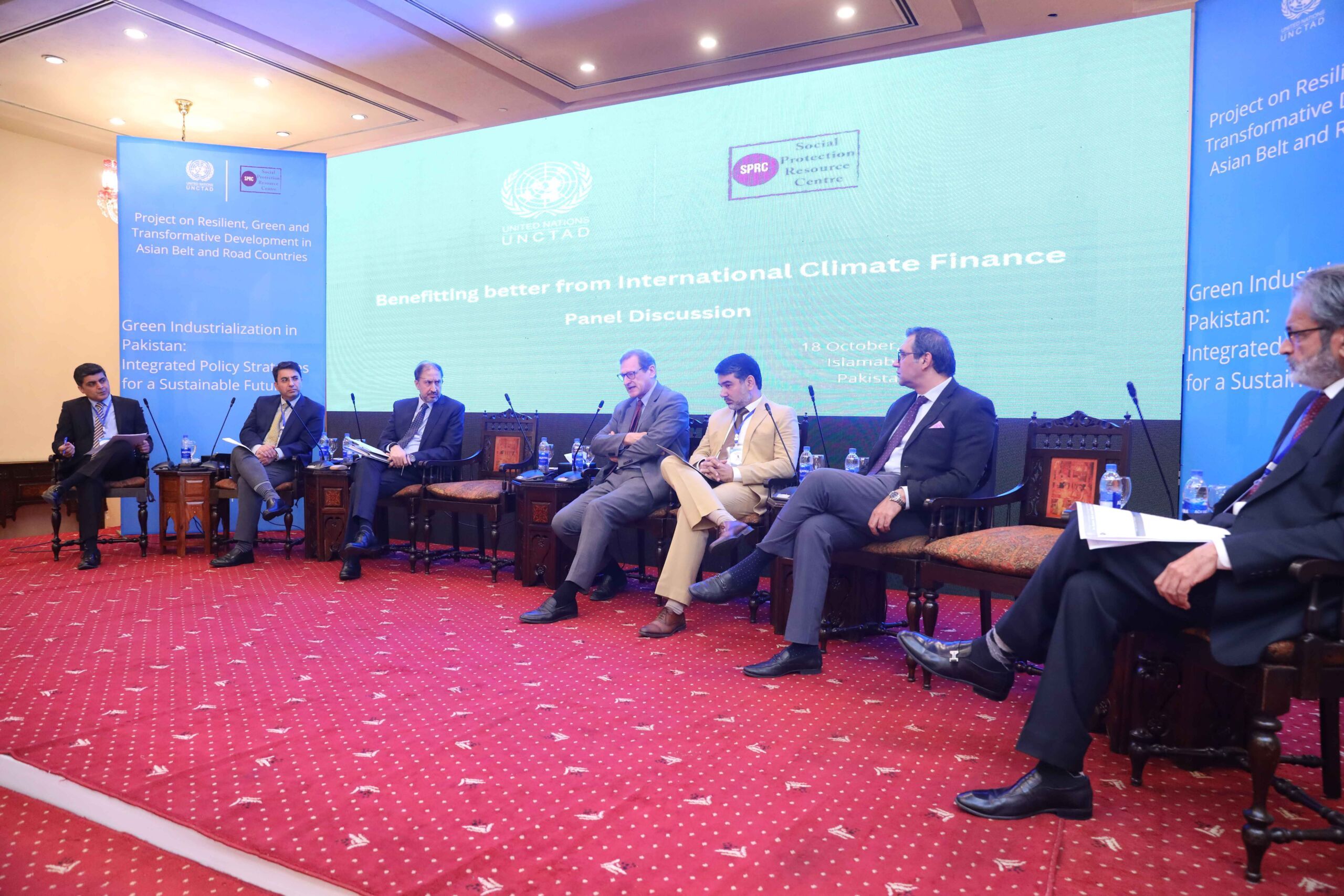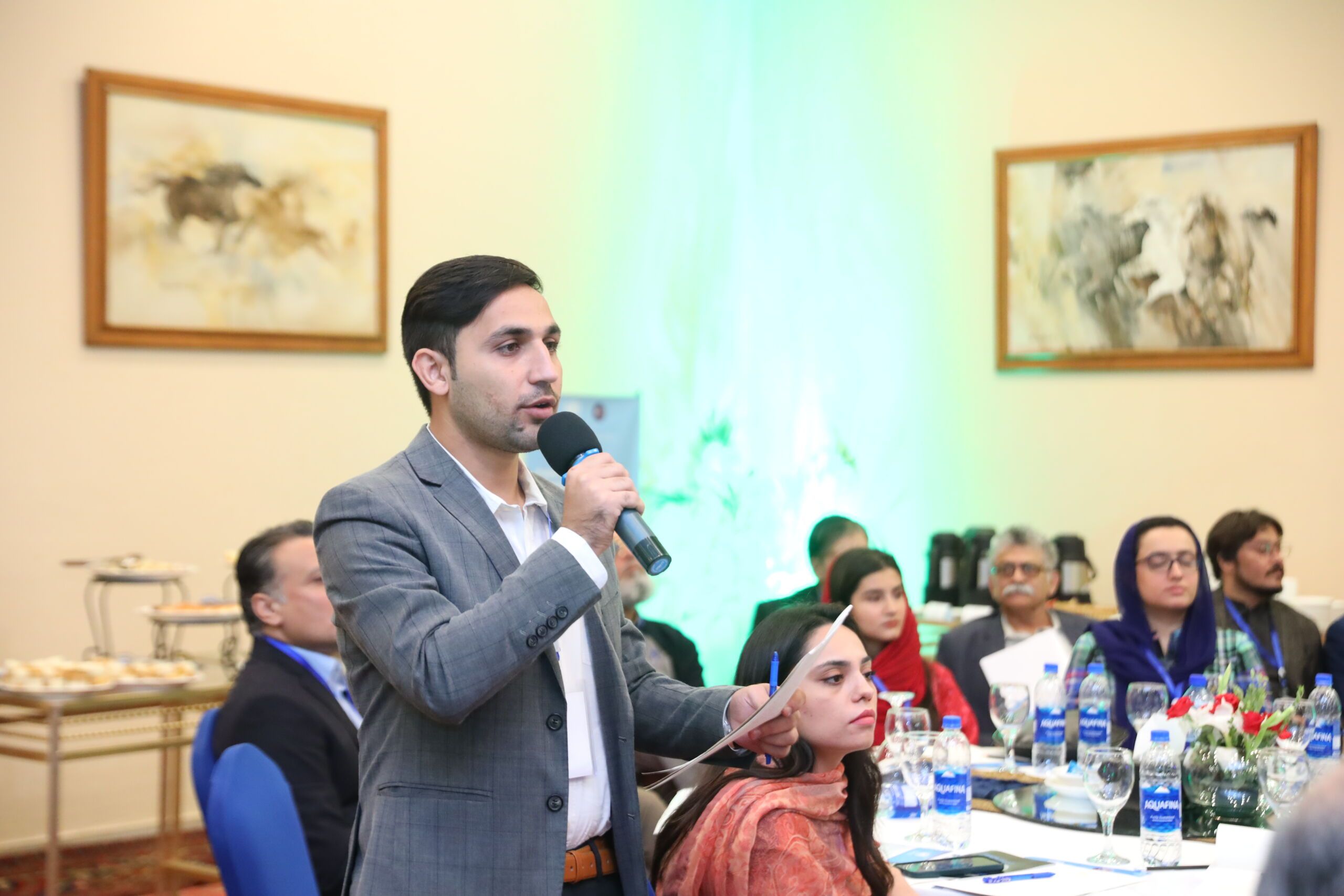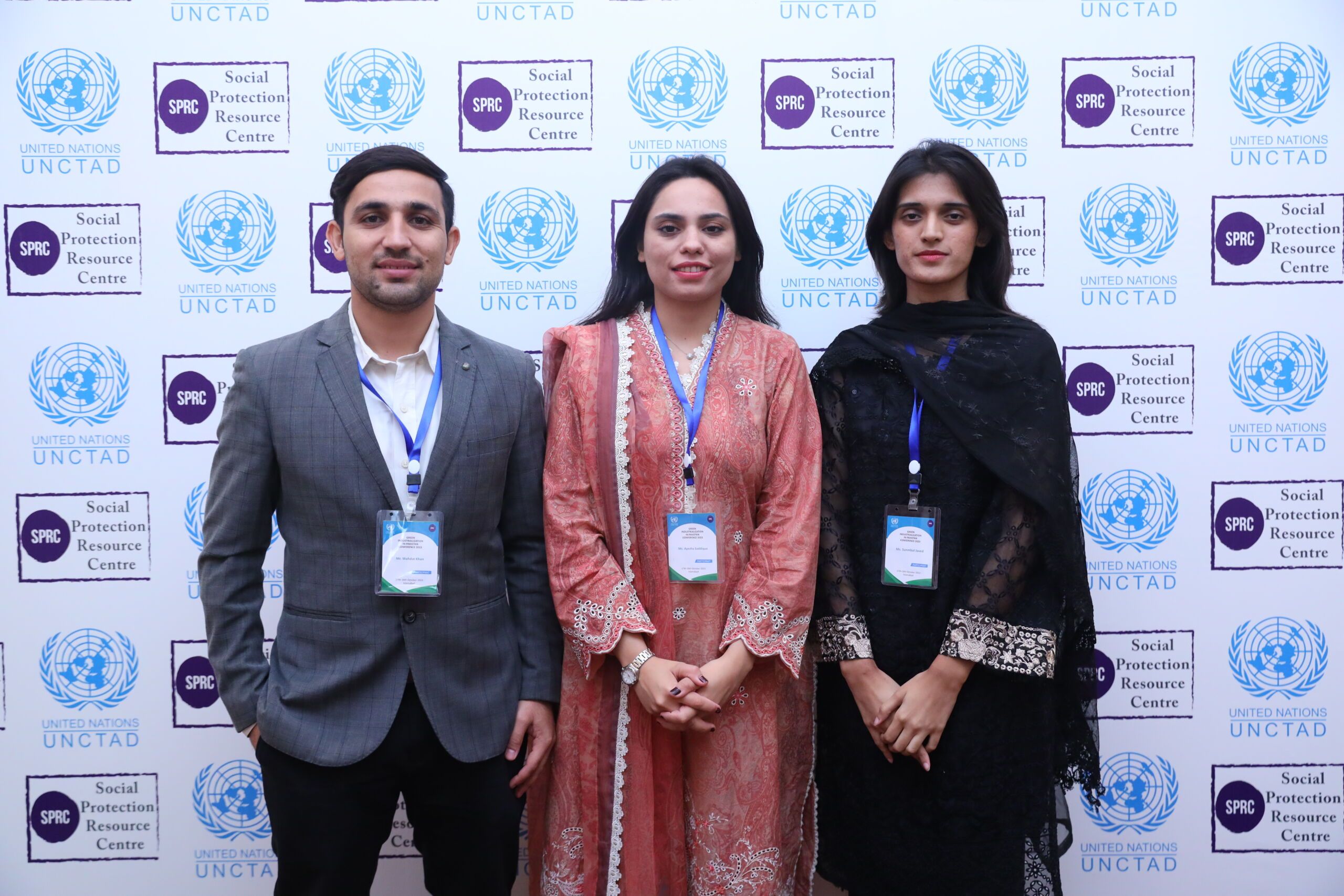
Green Industrialization in Pakistan Conference
Conference
Past Event
Oct 17, 2023 - 10:00 am |
Oct 18, 2023 - 12:00 am
UNCTAD & SPRC
Serena Hotel, Islamabad
Upcoming Event
To promote sustainable development and Green Industrialization, the United Nations Conference on Trade and Development (UNCTAD) in Geneva has introduced a collaborative project involving four countries: Pakistan, Turkey, Malaysia, and Kazakhstan. The primary objectives of this project revolve around strengthening these nations in two key areas: 1) enhancing national-level policy strategies and capacity, and 2) fostering economic cooperation and policy coordination at the regional level.
Under this initiative, the Social Protection and Resource Center (SPRC), in partnership with UNCTAD, arranged an informative conference titled “Green Industrialization in Pakistan” on the 17th and 18th of October 2023 in the capital city, Islamabad. This conference was a platform for policymakers, academics, and practitioners to come together and discuss the critical topic of green industrialization, with a particular focus on three key sectors: Textiles, Agriculture, and Transport. The two-day conference encompassed three distinct sessions, each featuring engaging discussions on various pertinent subjects. The inaugural session served as the launchpad for UNCTAD’s Green Industrialization project in Pakistan. Dr. Richard Kozul-Wright, the Director of UNCTAD on Trade and Development, along with Dr. Safdar Sohail, the Executive Director of SPRC, introduced the project. This session provided a comprehensive overview of the challenges and opportunities associated with green industrialization in Pakistan, thereby facilitating a sector-specific exploration of this important topic.
In the first session Binding Constraints of Green Industrialization, a difference between global and developing countries’ perspectives towards green industrialization was presented. However, the main binding constraint for Pakistan apart from finances, debts and structural deficiency is that the State itself acts in the prevention of diversified and innovative industrial reforms. Three elements were stated Awareness, Commitment, and Execution for effective implementation. The policies are mostly directed towards the Formal economy while the Informal one is speared out of regulations. Two ways for policy implementation Development of directed policy and Enforcement of policy.
Under Policy Strategies for Sustainable Future, three key sectors were pinpointed Transport, Agriculture, and Textile. 68 percent of urbanization is happening within the city boundaries in the country. The dilemma of sustainability for Pakistan is lack of mobilization of resources, misplaced focus, and lack of involvement of multiple stakeholders in the policy process. In Agriculture, a massive amount of wastage limits the capacity. For example, in 2010, a total of $43 billion in economic loss was inflicted on the country along with loss of cultivable land. In the transport sector policies are focused on road infrastructure which in turn has a negative impact as bulk of motorized vehicles increased by more than 2 times and other means of public transportation were completely ignored such as the railways. Its functioning since 1959, has decreased to 86 percent. The textile industry and its carbon footprint is an enormous matter left untouched. The detergents go directly into the water polluting groundwater with noxious chemicals, with its effects going long in damaging the marine life. Households are major contributors to pollution more than the aviation industry and their lack of awareness is exacerbating the already present peril in the form of drastic climate change. Avoid, Shift, and Improve approach shall be adopted. Financing in these sectors is requisite, for such local-level damage, Pakistan needs self-sufficient mechanisms that merge the gap of unawareness.
The panel considering the finances and broad implementation of policy made two pertinent points. First, a lack of domestic and international financial setup and a disconnect between private and public finance systems. UNCTAD said it will empower the public sector through private financing enhancing the capability of the government. A debate on the same perspective with two opposing opinions emerged. Dr. Kozul-Wright and Dr. Sohail focused on the involvement of the public sector through National financing to bring commendable green evolution as without it the policies would remain ineffective. They also highlighted the government’s limited capacity and inclusion of the private sector for green industrialization. It was observed that the Private sector monopolizes the benefits and socializes the risks. Whereas, the CEO of Classical International Trading Lahore, Mr. Muhammad Sajjad Mughal shared a different view about empowering the public sector through national financing only. He was of the view that Pakistan’s public sector cannot finance green projects on its own. It needs to seek support from private sector to help the government in achieving the SDGs vigorously.
In concluding comments the panelists stated that Pakistan has a serious Translational Problem, meaning the detachment of national policies in terms of language and connection with communities at the local level. The policies are designed and expressed in the language of technical complexities. Policies and policy makers communication with the bulk of people and industrial groups is weak or ineffective. That deserves attention and possible resolution. For effective policies evidence and data is critical and that demands expert knowledge and research.
It gives us pleasure to share that a three member team from the Centre for Public Policy and Governance (CPPG) attended the conference and made significant contribution through active participation and meaningful engagement. The team was led by Ms. Ayesha Saddiqua (Project Research & Public Relations Manager) along with two MPhil students of the department- Wahdat Khan and Sunmbal Javed. Our members proactively interacted with speakers, experts, and fellow attendees, showcasing a deep commitment to understanding and advancing the cause of sustainable industrial practices. Throughout the event, our team asked pertinent questions that stimulated thought-provoking discussions. These questions spanned a wide range of topics, from the economic feasibility of green technologies to the social and environmental implications of transitioning to eco-friendly industrial processes. The team acquired a deeper understanding of the complexities and potential solutions related to sustainable industrial practices. They learned about innovative technologies, policy frameworks, and the critical role of environmental conservation in the industrial sector.



